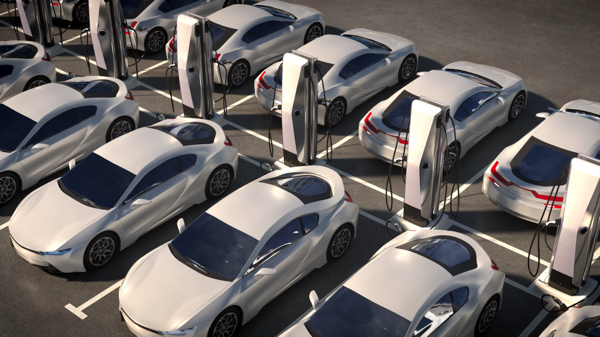 Parler
Parler Gab
Gab
- BYD's $1.28 billion electric vehicle factory in Bahia, Brazil faces allegations of forced labor and exploitative working conditions, involving Chinese workers brought by contractor Jinjiang. Workers were subjected to "slavery-like conditions," including passport confiscation, wage deductions and degrading living arrangements.
- Brazilian labor inspectors uncovered severe violations including overcrowded housing, lack of basic amenities and abusive contract terms – leading to the liberation of 163 workers from exploitative conditions.
- BYD claims ignorance of the violations and has terminated its contract with Jinjiang, but Brazilian officials hold BYD directly responsible for the actions of its contractors as the abuses occurred on its premises.
- The scandal has sparked outrage among Brazilian unions and politicians, who accuse BYD of sidelining local workers and undermining job creation in a region with nearly 10 percent unemployment. The project, once a symbol of Brazil-China cooperation, now risks damaging bilateral relations.
- The controversy raises broader concerns about Chinese-backed projects in Bahia, with local leaders emphasizing that development must not come at the cost of exploitative labor practices, while balancing the need for economic growth and job creation.
BYD scrambles to contain the fallout
The situation came to light in late November when Brazilian labor inspectors raided the workers' living quarters. What they found was appalling. Thrity-one workers were crammed into a single house with only one bathroom. Food were piled on the floor alongside personal belongings, and no mattresses were to be found. Inspectors described the conditions as “degrading” and promptly freed 163 workers from what they termed "slavery-like" exploitation. BYD, which has positioned itself as a global leader in sustainable technology, has scrambled to contain the fallout. The company claims it was unaware of the violations until Brazilian media broke the story and has since terminated its contract with Jinjiang. Alexandre Baldy, BYD Brasil's senior vice president, told Reuters that the automaker is taking steps to ensure such incidents “never happen again.” However, Brazilian labor officials have countered that BYD is "directly responsible" for the actions of its contractors as the violations occurred on its premises. The scandal has broader implications for Brazil-China relations and BYD's ambitious expansion plans. The Camaçari factory, built on the site of a former Ford plant, was supposed to symbolize a new era of industrial growth and job creation in Bahia, a state with nearly 10 percent unemployment. President Luiz Inacio Lula da Silva, a former union leader, had championed the project as a win for Brazilian workers. Instead, the revelation that Chinese contractors were importing labor under exploitative conditions has sparked outrage among local unions and politicians. Antonio Ubirajara Santos Souza, coordinator of the local construction workers' union, accused BYD of "not playing fair" by sidelining Brazilian workers in favor of imported labor. Union leaders have also reported ongoing issues at the construction site, including a lack of drinking water and other workplace irregularities. Local politicians have raised concerns about other Chinese-backed projects in Bahia, including a $1.28 billion bridge in the state capital Salvador. State congressman Alan Sanches warned that development must never come "at the cost of slave labor." In response, BYD has shared photos of new worker accommodations and cafeterias, but the damage to its reputation may already be done. Visit Enslaved.news for more stories like this. Watch this clip from One America News about the second Trump administration blocking Chinese forced labor from the U.S. economy. This video is from the NewsClips channel on Brighteon.com.More related stories:
Biden administration expands forced labor ban, adds 37 Chinese companies to entity list. Report suggests legacy automakers and EV manufacturers are "at risk of ties" to Uyghur FORCED LABOR in China. Concerns regarding use of forced labor in manufacturing process hampering future of solar power. Sources include: Reuters.com LNGInNorthernBC.ca TheTruthAboutCars.com Brighteon.comGovernment funding scandal rocks media: “Absolutely shocking” revelations unveiled
By Willow Tohi // Share
Compromised justice system: The Obama administration’s interference in Clinton’s espionage case
By Willow Tohi // Share
China’s covert coup: How Beijing tried to overthrow Spain’s government
By Ava Grace // Share
Trump DOJ sues Chicago and Illinois over sanctuary laws, citing public safety risks
By Cassie B. // Share
Netanyahu and far-right allies embrace Trump’s controversial Gaza relocation plan
By Cassie B. // Share
Governments continue to obscure COVID-19 vaccine data amid rising concerns over excess deaths
By patricklewis // Share
Tech giant Microsoft backs EXTINCTION with its support of carbon capture programs
By ramontomeydw // Share
Germany to resume arms exports to Israel despite repeated ceasefire violations
By isabelle // Share










